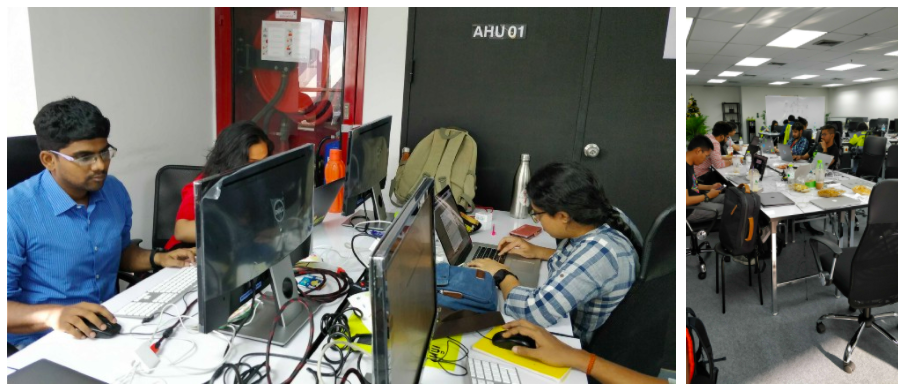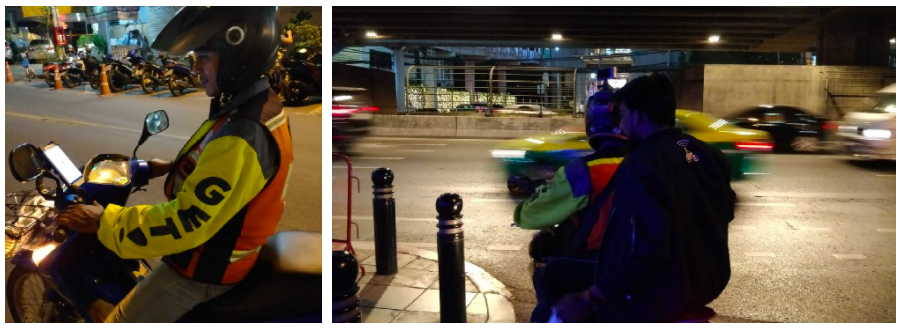By Sooraj Rajmohan
You are reading the final part of a three-part series documenting GOJEK’s expansion beyond Indonesia’s borders, and how one team helped make it possible.
Part one of this series, which documents the business and technical decisions made for international launch, can be found here. Part two, which chronicles the journey of GOJEK’s Vietnam launch under the GO-VIET brand, is here.
On to part three then:
Part 3/3 | Accomplishment
The atmosphere in Vietnam was celebratory. The GO-VIET launch had gone better than anticipated, and our attempt to build robust, scalable systems looked to have paid off. Ride and Send services were live in Vietnam, and engineers from GO-FOOD had already started working with Trifecta — the team spearheading GOJEK’s international moves — to launch our food product in Vietnam (FYI, it’s live now).
In the months following Vietnam launch, Trifecta focused on setting up cadences with different GOJEK product teams to streamline development and release cycles for GO-VIET. Everything was up and running.
Now, for the next stage — Thailand.
The launch plan for Thailand was similar to what had been executed in Vietnam, including the products made available at launch (Ride and Send). In Thailand, the brand would launch under the name GET.
We had proven it could be done. Now it was time to do it again. Easy, right?
As would soon become apparent, not really. This ride had a few last twists left.
A Different Method
While our Thailand operation would be similar to Vietnam on the infrastructure front, to say we could just replicate the model as is would be an oversimplification. For starters, Thailand’s currency, the Thai Baht, was not a depreciated currency like Indonesian Rupiah or Vietnamese Dong.
Here’s some context:
1 Indonesian Rupiah (IDR) = 0.0049 INR
1 Vietnamese Dong (VND) = 0.0030 INR
1 Thai Baht (THB) = 2.2 INR
Incorporating this change would require some additional work from the team. On top of this, the ride sharing market in Thailand is regulated by the Thai government. Existing bike taxis (locally called WIN taxis) are licensed by the government to serve as an effective mode of transportation. GOJEK’s entry into the market provided an opportunity for WIN drivers to leverage the online platform, while giving customers easy access to transportation
This arrangement required some work as well, as existing WIN drivers onboarded to GET would need to be prioritised initially while our own onboarding and training happened in parallel. All this meant that the launch model needed some tweaking, but nothing the team would need to sweat over too much.
Talks were completed, local business teams were built, and a deadline was agreed upon with the Thai government to launch GET.
We should have known; rarely do companies building, scaling, and expanding at GOJEK’s pace experience such smooth sailing.
The Singapore Swing
Works, meet spanner.
Due to the seismic shift in the ride-sharing business landscape of Southeast Asia in early 2018, GOJEK was also prepping for launch in Singapore on an accelerated timeline. Now was a good time to enter the lucrative market — the most developed in the region. GOJEK already enjoyed brand recognition thanks to the amount of business travel between Jakarta and Singapore. By May 2018, a few months before GO-VIET went live, the launch teams for Singapore had already been formed.
Keeping with Singapore’s iconic lion motif, we named these teams Simba and Mufasa. Stay tuned to this blog for their story, coming soon.
As 2018 drew on and all teams worked to hit their deadlines, the situation felt a lot like the storms GOJEK weathered in its infancy. Multiple teams were dependent on the same resources as we lined up back-to-back country launches. To top it all, holiday season — one of the busiest times of the year — was also kicking off.
While Trifecta had built much of the infrastructure framework required for launch, there were still dependencies on key GOJEK teams that were currently building for Singapore. This threatened to slow down what was an otherwise straightforward development timeline.
There was also that commitment of a launch date to the Thai Government to think about. The stakes were not trivial.
The team could not afford to lose more time. Time for desperate measures.
With just about a month left for launch, the team members — distributed across multiple locations — convened at the GOJEK Bangalore office. All the documentation done during the pre-Vietnam launch phase meant that everyone had a fair idea of what needed to be done. Launching Singapore and Thailand without delay was critical to business, and we could not afford delays.
With this in mind, tough decisions were made. The Trifecta team decided to roll up their sleeves and take full ownership of Thailand, freeing up the GOJEK Transport team to dedicate more resources to Singapore. Trifecta team members flew in to Thailand to coordinate the work there, and the project slowly picked up steam once again. All the legwork done at the beginning of this exercise had come to fruition.
The team now had enough context about GOJEK services, and as the days to launch ticked away, so did the items on the pre-launch checklist.

It took some doing, with the environment and frameworks built and stabilised while activities like driver onboarding and early alpha testing happened in parallel.
The going was not easy, but this wasn’t our first rodeo.
Trifecta Tech Lead Sumit Gupta, who was around in early 2016 during GOJEK’s frantic growth as well, mentions how everyone was more confident this time around. Thanks to to the team deciding to build a fast and scalable container-based architecture for Vietnam and Thailand, they were sure the system would function reliably.
The home stretch
Despite the apprehensions, Trifecta managed to pull through. What had been a system unfit for launch just a few weeks before the stipulated date, was up and running with a couple of days to go. The team’s faith was well-rewarded. As launch day came around, nothing broke.
Bagus Santoso and Ardi Priono, QAs on the Trifecta team, recall how everyone present gathered outside the GET office on the day of the soft launch, and prayed.
People of different nationalities, faiths, and professional backgrounds, united in a moment of reflection and hope for something they had built together.

On November 29, 2018, the GOJEK app successfully went live in Singapore. The next month, December 18 to be precise, GET’s fluorescent colours lit up Bangkok. We were officially live in Thailand.

Our SuperApp had ventured beyond home. Team Trifecta had accomplished the task it had been set.
Looking back, this had been an ambitious endeavour. Setting up new environments, using the learnings from scaling GOJEK to build improved infrastructure, and launching two new brands.
If there was one thing this exercise taught us, it was to reduce dependencies. Today, each GOJEK team is responsible for maintaining their product features and services wherever they may be deployed.
In service of this decision, Trifecta started the exercise of imparting all the knowledge, tools, and documentation gathered over the year to the relevant teams within GOJEK. Hands-on sessions and workshops were held, and learnings transferred. The goal now was to provide each team the tools and autonomy required to not face such roadblocks again.
Once this process was complete, their task done, the fellowship that steered GOJEK to foreign lands was disbanded.
Armed with new experience, the GOJEK engineers left Trifecta and joined other product teams. As for that specialist team that was brought in at the beginning of this story, the valuable experience they brought to the table would always be useful to a company that is taking on challenging projects. They moved to GOJEK’s newly-formed Kernel team, to help take on one of our biggest challenges yet.
But that is a story for another day.
This series was a snapshot of how we do things at GOJEK. Even as you read this, there are many more such stories developing. Keep watching this space!
Or better yet, join us and become a part of the story. There’s plenty to do and much to learn.
Thanks for reading!

Special thanks to Sourabh Gupta, Bagus Santoso, Ardi Priono, Sanchit Juneja, Sumit Gupta and Ade Kamayana.


